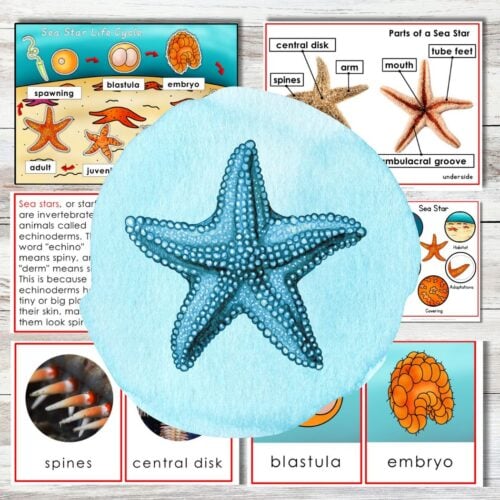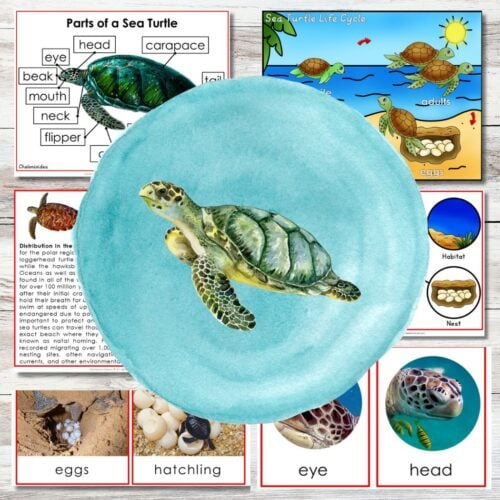Dive into the captivating world of majestic whales with our Montessori-inspired early learning printables, perfect for preschoolers! Your little learners will have a whale of a time honing key developmental skills––from nimble finger coordination with lacing cards, mastering numeracy with number clip cards, to perfecting fine motor precision through tracing and push pinning. Introduce them to the poetic rhythm of the whale’s life cycle, foster creativity with build-a-letter fun, and nurture their burgeoning scissor skills with cutting exercises. This whale-themed pack is designed to keep your preschooler engaged and enraptured.

About WHALES
Preschool education is a crucial foundation for children, as it shapes their understanding and curiosity about the world around them. Engaging children at this early stage with captivating topics is essential in order to foster their love for learning. One topic that holds endless fascination for youngsters is whales. Teaching preschool students about whales offers a host of benefits that contribute to their cognitive, social, and emotional development.
Firstly, learning about whales provides preschoolers with an opportunity to explore the wonders of the natural world. These magnificent creatures, with their colossal size and unique adaptations, captivate young minds and stimulate their curiosity. Introducing preschoolers to whales can spark a lifelong connection to nature and ignite a passion for environmental conservation from a very early age.

Additionally, studying whales can also enhance various cognitive skills in preschoolers. For instance, learning about their physical characteristics, such as their blowholes, fins, and blubber, can help children develop their observation and comparison skills. They can also engage in discussions that hone their critical thinking abilities, as they try to understand the reasons behind the behaviors and traits of different whale species.
Moreover, teaching preschool students about whales fosters their language and communication skills. Whales are a rich source of vocabulary and terminology that can expand a child’s vocabulary and help them describe and discuss different concepts. Preschoolers can learn new words such as “breaching,” “spyhopping,” or “singing” while exploring the world of whales. They can then use these words to express their thoughts and ideas, which enhances their ability to communicate effectively.
Furthermore, studying whales can promote social development among preschoolers. By incorporating group activities and discussions about whales, educators can encourage teamwork and collaboration. Preschoolers can participate in projects such as creating a whale-themed artwork or engaging in pretend play where they imitate the movements and sounds of whales. Such activities not only promote social interaction but also help children develop empathy and respect for living beings that are different from them.
Lastly, learning about whales can also have emotional benefits for preschool students. Witnessing the sheer size and magnificent power of whales can evoke awe and wonder, creating a sense of appreciation for the natural world. This connection nurtures a sense of empathy towards animals and fosters a desire to protect them. Preschoolers can develop a deep emotional bond with these gentle giants, cultivating a sense of responsibility and care for the environment.
Whales are very, very large animals that live in the ocean. They are not fish, but mammals, like us! This means they breathe air, have warm blood, and the mommy whales give milk to their babies.
There are two main types of whales:
- Baleen whales – These whales are like the big gentle giants of the sea. They have special comb-like teeth called baleen that they use to filter tiny creatures called plankton from the water for food.
- Toothed whales – These whales actually have teeth, and they use them to catch fish and other animals in the sea to eat.

Whale Size Comparison Poster, Match Up Cards – Free Printables
Here are some fun facts about whales:
- The biggest whale is the blue whale. It is the largest animal ever to live on Earth, even bigger than the biggest dinosaurs!
- Whales are great swimmers and some can dive very deep into the ocean.
- They talk to each other using beautiful sounds. This is how they say hello, find friends, and warn others about danger.
- Whales love to jump out of the water sometimes. When they splash back down it’s called breaching!
- Baby whales are called calves, and they stay close to their moms.
- Whales are very important and we need to take care of the oceans so they can be happy and healthy.
Let’s dive into the exciting world of whales with these Montessori-inspired hands-on activities for your preschoolers!
Montessori-inspired learning activities are designed to engage children in hands-on experiences, fostering exploration and self-directed learning. Here are some Montessori-friendly activities related to whales that will be fun and educational for preschool-aged children:
Sorting Whale Species:
Prepare cards with pictures and names of different whale species. Teach your preschooler to identify the whales and sort them by different attributes such as size, color, and habitat. This helps with learning classification and vocabulary.
Whale Puzzle:
Create or purchase a wooden puzzle featuring a whale. Puzzles help children develop fine motor skills and problem-solving abilities. For an educational twist, each puzzle piece can represent a part of the whale’s anatomy, such as the fluke, fins, blowhole, etc.
Felt Ocean Habitat:
Put together a felt ocean scene where children can place felt whales in their habitat. This activity promotes storytelling and understanding of the whale’s environment. Preschoolers can talk about what the whales might be doing, like diving, feeding, or migrating.
Match the Whale Shadows:
Provide children with pictures of whales and their corresponding shadow shapes. Have the children match the whale with its shadow, which promotes visual discrimination and attention to detail.
Whale Size Comparison:
Use a tape measure to mark the lengths of different whales on the playground or in a long hallway. Children can compare their own size to the whale sizes, which promotes understanding of scale and measurement.
Songs and Rhymes:
Teach them songs or rhymes related to whales, such as modifications to popular tunes like “Down by the Bay” with whale-themed lyrics. This helps with language development and memory.
Life Cycle of a Whale:
Create a simple life cycle chart or 3D model to show the stages of a whale’s life from birth to adulthood. Discuss each stage and the changes that occur, promoting an understanding of growth and life processes.
Sensory Whale Wash:
Set up a small tub with water and add toy whales. Kids can use sponges to gently ‘wash’ the whales, incorporating elements of water play, which is calming and provides a sensory experience.
Blowhole Breathing Exercise:
Teach children about how whales breathe through their blowholes and engage them in a breathing exercise. Have them take deep breaths and then ‘spout’ like a whale, which can also be a mindfulness practice.
Whale Migration Game:
Create a simple board game where children move whale figurines along a track to simulate migration. Incorporate obstacles and facts about whale migration to promote strategic thinking and learning.

WHALE Early Learning Free Printable
🐳 Whale Lacing Cards – Strengthen fine motor skills and hand-eye coordination with beautifully illustrated card featuring an orca. Lacing activities are not only engaging but also prepare little hands for writing.
🔢 Number Clip Cards – Featuring different types of whales, these number clip cards challenge children to count and identify numbers. By clipping the correct number of objects, children enhance their counting skills and number recognition enjoyably.
✍️ Tracing Activities – Get those little fingers moving as children trace lines and shapes. These tracing worksheets help improve pencil control and prepare children for writing letters and numbers.
📍 Push Pinning Exercises – Push pinning activities encourage children to develop their pincer grip and concentration. Kids will love creating dotted outlines of a whale that they can proudly display.
🔢 Counting Activities – Take a deep dive into numbers with fun counting worksheets.
🔤 Building Letters – Introduce letter recognition and formation with whale-themed alphabet cards. Children can use these cards to practice building letters with blocks.
✂️ Cutting Practice – Help your preschoolers develop their scissor skills with cutting activities that feature whales. Not only is this a critical motor skill, but it’s also an essential step towards independence.
📜 Whale Life Cycle Poem – Combine science with language arts as kids learn about the stages of whale life through an enchanting poem. This reading activity enhances comprehension and instills a love for marine biology.
🖊️ Pre-Writing Practice – Get set for writing success with pre-writing printables that include lines and shapes commonly found in letters. These sheets are a gentle introduction to writing that will engage and encourage your young learners.
Each printable is designed to enchant and educate, with a focus on Montessori principles that promote independent learning, concentration, and a love for nature. These whale-themed activities are not only educational but also sustainable, allowing for repeated use and enjoyment.
Your preschoolers will splash into learning with excitement as they explore the depths of the ocean with these whale-inspired printables. It’s an ocean of fun with a wave of knowledge awaiting them!
How to Use These Printables:
- Print the materials on high-quality paper or cardstock for durability.
- Laminate the cards for extended use and to allow for easy wiping clean.
- Present each activity on a tray or in a clear container to entice and engage your preschooler.
- Introduce each activity one at a time to avoid overwhelming your child and to keep their focus on one skill at a time.
- Most importantly, be present and enjoy the journey of exploration with your child, creating lasting memories and a strong educational foundation.
Set sail on this educational voyage and watch as your preschooler makes waves in their early learning experience! 🌊
Note: Always ensure that printables and activities are age-appropriate and that children are supervised during activities that involve small pieces or tools like scissors and push pins.

[click to sign up and download this pritnable]
learning printables you might find helpful in your classroom
-
 Sea Star Life Cycle Parts of Starfish Pack Marine Biology$8.80
Sea Star Life Cycle Parts of Starfish Pack Marine Biology$8.80 -
Product on sale
 Ocean Animals Life Cycle Anatomy Facts 3 Part Cards Worksheets BundleOriginal price was: $57.00.$29.00Current price is: $29.00.
Ocean Animals Life Cycle Anatomy Facts 3 Part Cards Worksheets BundleOriginal price was: $57.00.$29.00Current price is: $29.00. -
 Parts of Orca Life Cycle Types of Whales Nomenclature 3 Part Cards Facts$7.00
Parts of Orca Life Cycle Types of Whales Nomenclature 3 Part Cards Facts$7.00 -
 Dolphins and Whales Safari Toob 3 Part Cards Editable$3.00
Dolphins and Whales Safari Toob 3 Part Cards Editable$3.00 -
 Coral Reef Safari Toob 3 Part Cards Editable$3.30
Coral Reef Safari Toob 3 Part Cards Editable$3.30 -
 Sea Turtle Life Cycle Parts of Montessori 3-Part Cards: Science Activities$8.80
Sea Turtle Life Cycle Parts of Montessori 3-Part Cards: Science Activities$8.80 -
 Parts of Manatee Life Cycle Types Nomenclature 3 Part Cards Facts$7.00
Parts of Manatee Life Cycle Types Nomenclature 3 Part Cards Facts$7.00 -
 Parts of Seahorse Life Cycle Types Nomenclature 3 Part Cards Facts$7.20
Parts of Seahorse Life Cycle Types Nomenclature 3 Part Cards Facts$7.20 -
 Parts of Puffin Life Cycle Types Nomenclature 3 Part Cards Facts$7.20
Parts of Puffin Life Cycle Types Nomenclature 3 Part Cards Facts$7.20





















